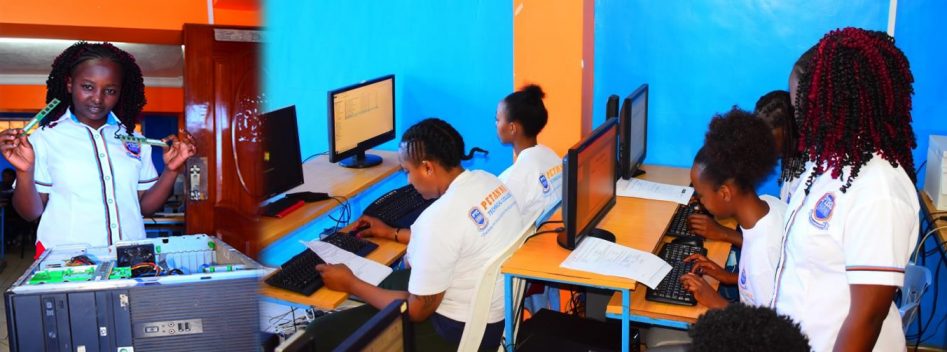TODAY THE IT INDUSTRY IS DELIVERING KEY INNOVATIONS THAT WILL ENABLE BUSINESSES TO BUILD INFORMATION SYSTEMS AND PROCESSES THAT ARE FLEXIBLE, COST EFFECTIVE AND ENVIROMENTAL FRENDLY.LEARN MORE ABOUT THIS IN OUR IT DEPARTMENT.
We offer various ICT courses with approved examination bodies such as ICM, CDL, Internal and KNEC.
These courses include: –
- Information Technology.
- ICDL.
- Web Design and Graphics Design.
- Computerized Programming.
- Computerized Accounting.
- Basic Computer Certificate
- Certified Information Communication Technology.
We also guarantee our students attachment opportunities in various companies collaborating with PIBS. However this only happens after suc- cessful external exam assessment. Therefore, enroll at PIBS gives you an added advantage of getting in contact with qualified and accredited Lecturers and also quality education is a guarantee. July intake is opening soon, enroll now and your future will never be the same in the world of Information Technology.





















